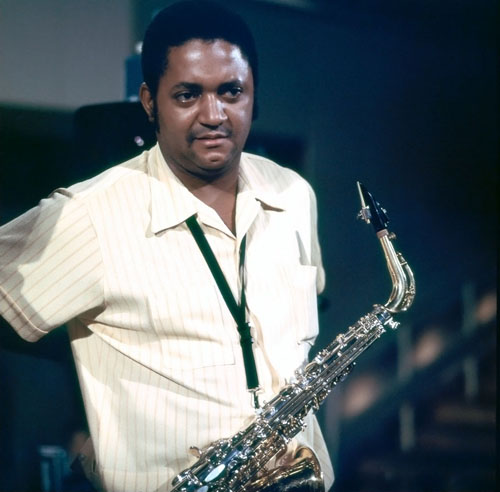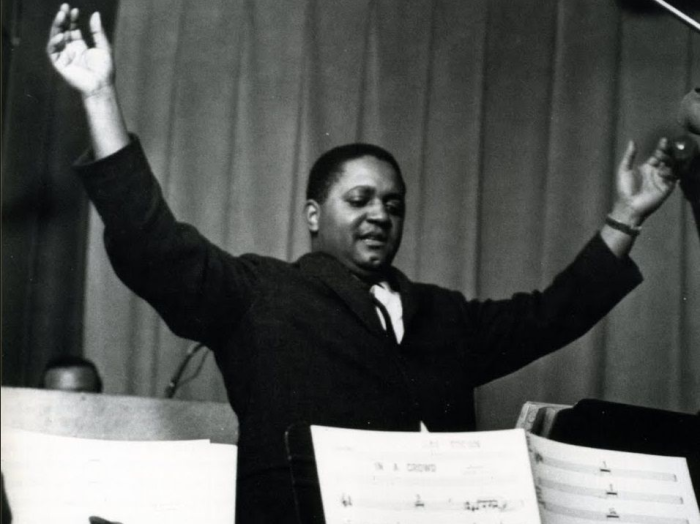Classic Recordings,
The Blues and the Abstract Truth

Oliver Nelson is often seen as one of the more underappreciated musicians of the bebop and post-bop era, never quite achieving the stardom of some of his fellow sax-slinging contemporaries like John Coltrane or Charlie Parker despite producing some real landmark work at the forefront of the genre’s developments in the early 60s. Having played both piano and saxophone from a young age, much of Nelson’s earliest experiences were playing in territory bands during his military service; it was during this service in Korea and Japan that he attended a concert of Ravel and Hindemith by the Tokyo Philharmonic Orchestra which represented something of a turning point for Nelson, starting him on the path that would lead to him studying composition and theory after returning to his native Missouri with the dream of becoming a composer himself.
Prior to signing with Prestige and later Impulse! Records in the 60s, Nelson cut his teeth in the bands of Count Basie and Duke Ellington, and was a longtime member of Quincy Jones’s band while also working extensively as an arranger - something he’d begun in his early days playing for Louis Jordan in the 1950s. Throughout his time as an arranger and conductor, his career would have him working with Milt Jackson, Jimmy Smith, Wes Montgomery and Pee Wee Russell just to name a few. Though the saxophonist would record six albums for Prestige as bandleader around the turn of the 1960s (and would continue to release on Prestige even after ’Abstract Truth), Blues and the Abstract Truth was Nelson’s first recording after signing with Impulse! Records, and remains one of his most lauded releases. As the title suggests, ’Abstract Truth is Nelson’s own contemporary interpretation of the blues - each tune on the album is a blues in some form - while he pulls from a wide pool of inspirations to bring it forward to the modern age. His background in European classical music gave him the edge when it came to composing, while his firsthand experience in numerous big bands meant he had a well-trained ear for soloists and, specifically, arranging.

The lineup for Nelson’s Impulse! debut is nothing short of a powerhouse, particularly the inclusion of Eric Dolphy playing saxophone (and flute on ‘Stolen Moments’), whose angular, modernist style contrasted surprisingly well with Nelson’s more conventional hard-bop licks throughout the record (listen for the sparks flying on the title track from Nelson’s following album Straight Ahead, where the pair go head-to-head), and Bill Evans, who makes his only appearance alongside Nelson for this session. Also present for the proceedings is Freddie Hubbard, who would later play for Dolphy on his own seminal work Out to Lunch!, as well as Herbie Hancock’s Maiden Voyage, who shows off his capability to play it straight on the more hard bop-inspired tracks, but can easily go off-the-hook if he wants to. And you can hardly ask for a better rhythm section than Paul Chambers and Roy Haynes, Chambers being the man behind the bass on Miles Davis’s Kind of Blue (as well as Relaxin’ with the Miles Davis Quintet and Milestones), while Haynes has an innumerable amount of recording credits to his name, with almost two decades-worth by the time he joined for the ’Abstract Truth sessions. Seemingly the only member who eschews the spotlight is baritone saxophonist George Barrow, who decidedly doesn’t take a single solo throughout the record’s runtime; his contributions are a little more subtle, a bassy back-bone in Nelson’s arrangements.
The Blues and the Abstract Truth is an incredibly varied production, perhaps speaking to Nelson’s diversity and curiosity as a composer; Nelson would also release More Blues and the Abstract Truth only a few years later in 1964, but it would bear little resemblance to today’s record, even having a totally different line-up. The centrepiece of the album, the opening track ‘Stolen Moments’, remains Nelson’s most well-known standard; though his music had something of a reputation for being complex to understand, it is remarkably easy to digest, particularly ‘Stolen Moments’ with its coolly understated vibe and real earworm of a melody. ‘Hoe Down’ - inspired by Aaron Copland’s ‘Rodeo’ - has an opening melody that practically screams Americana, though still features all the boppy jamming you’d expect from the era, while the flowing melody in ‘Cascades’ is befitting of the tune’s title, the lead playing against an ensemble of brass. It’s an excellent release in its own right, as well as a great encapsulation of a composer and arranger’s talents at its peak, while the title befits its consideration of both his high understanding of jazz composition and the raw appeal of the blues that permeates the entire record.


